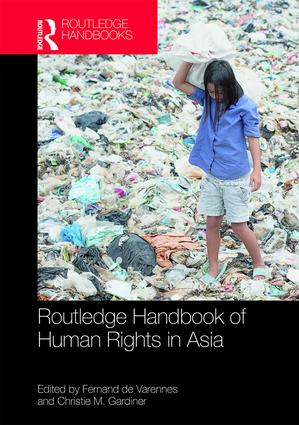Description
Shipping for this item is FREE, please allow 15 days for shipping. As its shipped from our Auckland warehouse there is no unexpected import charges, custom duties or taxes.
Condition: BRAND NEW
ISBN: 9781138855700
Year: 2018
Publisher: Taylor & Francis
Pages: 362
Description:
The Routledge Handbook of Human Rights in Asia provides a rich study of human rights challenges facing some of the most vulnerable people in Asia. While formal accession to core international human rights instruments is commonplace across the region, the realisation of human rights for many remains elusive as development pressure, violent conflict, limited political will and discrimination maintain human rights volatility.
This Handbook explores the underlying causes of human rights abuse in a range of contexts, considers lessons learnt from global, regional and domestic initiatives and provides recommendations and justifications for reform. Comprising 23 chapters, it examines the strengths and weaknesses of human rights institutions in Asia and covers issues such as:
Participation, marginalisation, detention and exclusion
Private sector responsibility and security
Conflict and post-conflict rehabilitation
Trafficking, displacement and citizenship
Ageing populations, identity and sexuality.
Drawing together a remarkable collection of leading and emerging scholars, advisers and practitioners, this Handbook is essential reading for students, scholars, policy makers and advocates of human rights in Asia and the world.
Condition: BRAND NEW
ISBN: 9781138855700
Year: 2018
Publisher: Taylor & Francis
Pages: 362
Description:
The Routledge Handbook of Human Rights in Asia provides a rich study of human rights challenges facing some of the most vulnerable people in Asia. While formal accession to core international human rights instruments is commonplace across the region, the realisation of human rights for many remains elusive as development pressure, violent conflict, limited political will and discrimination maintain human rights volatility.
This Handbook explores the underlying causes of human rights abuse in a range of contexts, considers lessons learnt from global, regional and domestic initiatives and provides recommendations and justifications for reform. Comprising 23 chapters, it examines the strengths and weaknesses of human rights institutions in Asia and covers issues such as:
Participation, marginalisation, detention and exclusion
Private sector responsibility and security
Conflict and post-conflict rehabilitation
Trafficking, displacement and citizenship
Ageing populations, identity and sexuality.
Drawing together a remarkable collection of leading and emerging scholars, advisers and practitioners, this Handbook is essential reading for students, scholars, policy makers and advocates of human rights in Asia and the world.

